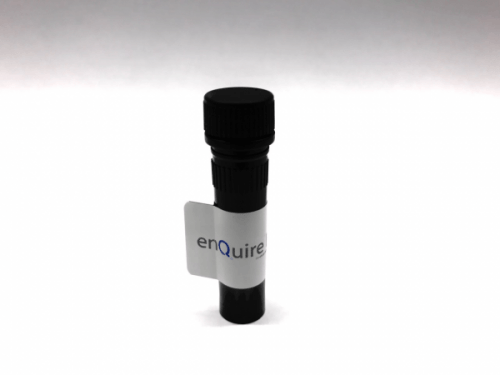Human STK16 / PKL12 / MPSK Recombinant Protein Product Attributes
Product Type: Recombinant Protein
Recombinant STK16 / PKL12 / MPSK based upon sequence from Human
Host: QP6738 protein expressed in E. coli.
Tag: GST
Protein Construction: A DNA sequence encoding the Homo sapiens (Human) STK16 / PKL12 / MPSK, was expressed in the hosts and tags indicated. Please select your host/tag option, above.
Recommended Applications: Immunogen, Protein Standard, Cell culture, or Other Cell Biology Applications.
Application Notes: Please contact us for application specific information for QP6738.
Bioactivity Data: Untested
Full Length? Full Length
Expression Region: Gly1 – Ile305
Amino Acid Sequence: GHALCVCSRG TVIIDNKRYL FIQKLGEGGF SYVDLVEGLH DGHFYALKRI LCHEQQDREE AQREADMHRL FNHPNILRLV AYCLRERGAK HEAWLLLPFF KRGTLWNEIE RLKDKGNFLT EDQILWLLLG ICRGLEAIHA KGYAHRDLKP TNILLGDEGQ PVLMDLGSMN QACIHVEGSR QALTLQDWAA QRCTISYRAP ELFSVQSHCV IDERTDVWSL GCVLYAMMFG EGPYDMVFQK GDSVALAVQN QLSIPQSPRH SSALRQLLNS MMTVDPHQRP HIPLLLSQLE ALQPPAPGQH TTQI
Purity: Greater than 80% as determined by SDS-PAGE.
Reconstitution Instructions: Concentrated protein in liquid format. Reconstitution is not necessary.
Concentration of Human STK16 / PKL12 / MPSK Protein:
Endotoxin Levels: Not determined.
Buffer: Tris-based buffer, 50% glycerol
Storage Conditions: Store at -20C to -80C.
| Recombinant Human STK16 / PKL12 / MPSK Protein General Information | |
|---|---|
| Alternate Names | |
| STK16, PKL12, MPSK, PSK, KRCT, PKL12, MPSK, TSF1, hPSK | |
| Curated Database and Bioinformatic Data | |
| Gene Symbol | STK16 |
| Entrez Gene ID | 8576 |
| Ensemble Gene ID | ENSG00000115661 |
| RefSeq Protein Accession(s) | NP_001008910.1 |
| RefSeq mRNA Accession(s) | NM_001008910.3, NM_001330213.1 |
| UniProt ID(s) | O75716 |
| UniGene ID(s) | Hs.153003 |
| HGNC ID(s) | HGNC:11394 |
| KEGG Gene ID(s) | hsa:8576 |
| PharmGKB ID(s) | PA36202 |
| General Description of Recombinant Human STK16 / PKL12 / MPSK Protein. | |
| Membrane-associated protein kinase that phosphorylates on serine and threonine residues. In vitro substrates include DRG1, ENO1 and EIF4EBP1. Also autophosphorylates. May be involved in secretory vesicle trafficking or intracellular signaling. May have a role in regulating stromal-epithelial interactions that occur during ductal morphogenesis in the mammary gland. May be involved in TGF-beta signaling. Able to autophosphorylate on Tyr residue; it is however unclear whether it has tyrosine-protein kinase toward other proteins. | |
Limitations and Performance Guarantee
This is a life science research product (for Research Use Only). This product is guaranteed to work for a period of two years when stored at -70C or colder, and one year when aliquoted and stored at -20C.




There are no reviews yet.